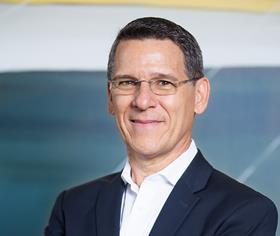
Fresh Del Monte has announced today (8 November) its participation at this year’s World Biodiversity Summit, which is taking place alongside the United Nations Climate Change Conference (COP26) and the Convention on Biological Diversity (COP15).
The company's chief sustainability officer Hans Sauter will join industry leaders in a panel discussion on 'Sustainable and Regenerative Agriculture at the Center of Development Strategies – Challenges and Opportunities'.
This conversation will centere around how to transition the industry toward more resilient agricultural practices in a warming world, while maintaining global food security, with innovation and technology as integral components.
Del Monte said it saw the event as a critical opportunity to address the important role the private sector has in responding to the intertwined crises of biodiversity loss and climate change.
“It is extremely important to me to be able to represent Fresh Del Monte’s initiatives at the World Biodiversity Summit and COP26,” said Sauter, who also works as senior vice-president of research and development in addition to his role as Chief Sustainability Officer. “Time is of the essence, and it is vital for different stakeholders in society to come together to identify and implement game-changing solutions to stimulate food production, while conserving biodiversity and addressing climate change.
'As one of the largest integrated producers, marketers, and distributors of fresh produce, we want to lead change,' he continued. 'We believe that as an agricultural company, we can be an integral part of the solution.
'However, we cannot do it alone. With our pledge to implement regenerative farming and soil-health management in all our farms and associated growers’ farms by 2030, we hope to inspire every member of the supply chain (farmers, retailers and consumers) to also do their part.”
Some of Fresh Del Monte’s efforts toward building 'A Brighter World Tomorrow' include conserving and restoring forests and wild areas to protect biodiversity in and around their farms.
This amounts to 28 per cent of the company's owned land – preserving soil health, stewarding critical water sources, and providing quality education and scholarships for students throughout their growing regions.



